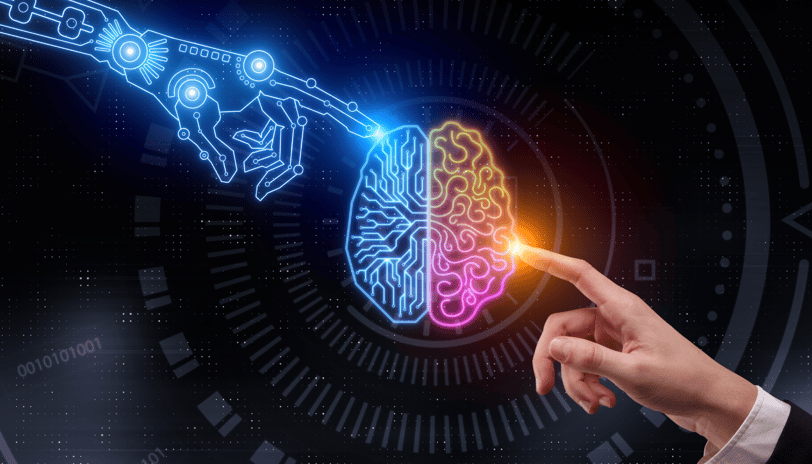Infosys CEO Salil Parekh: No Job Cuts Ahead, Envisions Harmonious Tech Integration with GenAI
Infosys CEO Salil Parekh reassures employees and stakeholders that the company has no plans for job cuts. Envisions a future where technologies like GenAI coexist within large organizations. Meanwhile, PayTM hints at AI-driven job cuts.
SCIENCE | TECHNOLOGYECONOMY | FINANCE
29 May 2024
Ever since AI cemented its presence across industries globally, Indians have found themselves navigating an increasingly challenging job environment. Think back to the 1950s when the first commercial computers arrived—those bulky machines sparked a revolution. Hardware and software danced in tandem, paving the way for new jobs while rendering some obsolete. Fast forward to the 21st century, the advent of AI poses an even more significant transformation. Not only are millions of jobs at risk, but the very concept of employment or jobs is in question, prompting discussions on universal basic income and other innovative economic models.
The Current Landscape: Restructuring and Job Losses
In 2024 alone, nearly 100,000 tech jobs have vanished globally, a stark reminder of the rapid changes underway. Companies often attribute these layoffs to "restructuring," a term that thinly veils the deeper impact of AI. It's not that firms are outright blaming AI, but the subtext is clear: many roles are becoming redundant or are now manageable by fewer hands due to advanced automation. This shift prompts a compelling question—are we entering an era where machines manage us?
Optimism from Industry Leaders
Despite the widespread concern, some tech leaders in India are charting a hopeful course. Infosys CEO Salil Parekh, for instance, has reassured employees and stakeholders that the company has no plans for job cuts despite the broader trend of layoffs due to advancements in Generative AI. Parekh envisions a future where technologies coexist within large organizations, creating new opportunities rather than displacing existing jobs. He emphasizes that Infosys will continue to hire and develop expertise in AI, positioning the company to better serve global enterprises.
On the flip side, PayTM offers a more cautious narrative. After grappling with regulatory hurdles and reporting a sales decline, the company hinted at possible AI-driven job cuts to streamline its operations and focus on core business areas. This reflects a broader trend where companies, under financial pressure, might increasingly turn to AI as a cost-saving measure.
The Promise of AI: Job Creation
Contrary to the fear of job losses, some experts argue that AI will also usher in new opportunities. Professor Debabrata Das from IIIT Bangalore points out that while automation might take over some jobs, it will simultaneously create roles in AI development, applications, and support systems. This perspective encourages a balanced view, recognizing that AI’s impact isn’t solely about displacement but also about evolution and growth.
Varun Gupta, co-founder of Boult, echoes this optimism. He sees AI as a tool that enhances human capabilities rather than replacing them. Whether in coding, design, or content creation, AI can make us faster and better, but it hasn’t yet reached a point where it can fully replicate human ingenuity.
The Crucial Role of Upskilling
Amidst these varying perspectives, one message stands out—upskilling is essential. To remain relevant in an AI-driven world, continuous learning and adaptation are crucial. This isn’t just about survival; it’s about thriving in a landscape where AI tools can augment human potential. Upskilling means embracing lifelong learning and developing skills that complement and leverage AI technologies to enhance personal and professional performance.
Rethinking Employment: Beyond Traditional Jobs
As we stand on the brink of a major transformation, it’s vital to rethink traditional employment. The rise of the gig economy, remote work, and freelancing offer new avenues for earning a living. And let’s not forget the wild frontiers of space colonization and interstellar trade. These futuristic developments hint at a world where work is as diverse, flexible, and tech-savvy as your favorite sci-fi movie. Buckle up, because the future of work is going to be one heck of a ride!
Thriving in the AI Era: Embracing a New Work Landscape
The integration of AI into various industries marks a significant shift in the job landscape. While it presents challenges and uncertainties, it also opens up new opportunities for those willing to adapt and innovate. By embracing upskilling and exploring new economic models, we can navigate this transformation and build a future where technology and human creativity coexist harmoniously. As we look towards the future, it is clear that the concept of work will continue to evolve, driven by the relentless march of technological progress.
This journey isn’t just about surviving the AI revolution—it’s about thriving in it, finding new ways to work, live, and prosper in a world where the lines between human and machine blur ever more intriguingly.


